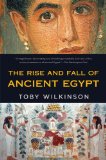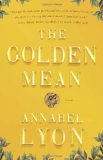Summary | Excerpt | Reading Guide | Reviews | Read-Alikes | Genres & Themes | Author Bio

Why the Greeks Matter
by Thomas CahillIn the fourth volume of the acclaimed Hinges of History series, Cahill brings his characteristic wit and style to a fascinating tour of ancient Greece.
In the fourth volume of the acclaimed Hinges of History series, Thomas Cahill brings his characteristic wit and style to a fascinating tour of ancient Greece.
The Greeks invented everything from Western warfare to mystical prayer, from logic to statecraft. Many of their achievements, particularly in art and philosophy, are widely celebrated; other important innovations and accomplishments, however, are unknown or under-appreciated. In Sailing the Wine-Dark Sea, Thomas Cahill explores the legacy, good and bad, of the ancient Greeks. From the origins of Greek culture in the migrations of armed Indo-European tribes into Attica and the Peloponnesian peninsula, to the formation of the city-states, to the birth of Western literature, poetry, drama, philosophy, art, and architecture, Cahill makes the distant past relevant to the present.
Greek society is one of the two primeval influences on the Western world: While Jews gave us our value system, the Greeks set the foundation and framework for our intellectual lives. They are responsible for our vocabulary, our logic, and our entire system of categorization. They provided the intellectual tools we bring to bear on problems in philosophy, mathematics, medicine, physics, and the other sciences. Their modes of thinking, considered in classical times to be the pinnacle of human achievement, are largely responsible for the shape that the Christian religion took. But, as Cahill points out, the Greeks left a less appealing bequest as well. They created Western militarism and, in making the warrior the ultimate ideal, perpetrated the assumption that only males could be entrusted with the duties of citizenship. The consequences of their exclusion of women from the political sphere and the social segregation of the sexes continue to reverberate today. Full of surprising, often controversial, insights, Sailing the Wine-Dark Sea is a remarkable intellectual adventure—conducted by the most companionable guide imaginable. Cahill’s knowledge of his sources is so intimate that he has made his own fresh translations of the Greek lyric poets for this volume.
CHAPTER I
THE WARRIOR
HOW TO FIGHT
Zeus, who controlled rain and clouds and held in his hand the awful thunderbolt, was Lord of the Sky and greatest of the gods, but not the oldest. He and the eleven other Olympians--the gods and goddesses who dwelt in the heaven at the top of Mount Olympus, Greece's highest mountain--had been preceded in their reign by the elder gods, the Titans, whom they had overthrown. The Titans had been formed by Father Heaven and Mother Earth, which had existed before any of the gods, having emerged from the primordial Chaos, whose children, Darkness and Death, had given birth to Light and Love (for Night is the mother of Day), which made possible the appearance of Heaven and Earth.
Zeus, son of the deposed Titan Cronus, was perpetually falling in love, wooing and usually raping beautiful women, both immortal and mortal, who would then give birth to gods and demigods, complicating considerably family relations on Olympus. Hera, Zeus's wife and ...

If you liked Sailing the Wine-Dark Sea, try these:

The Rise and Fall of Ancient Egypt
by Toby Wilkinson
Published 2013
In this landmark work, one of the world’s most renowned Egyptologists tells the epic story of this great civilization, from its birth as the first nation-state to its final absorption into the Roman Empire—three thousand years of wild drama, bold spectacle, and unforgettable characters.

by Annabel Lyon
Published 2011
A startlingly original first novel by "this generation's answer to Alice Munro" (The Vancouver Sun) - a bold reimagining of one of history's most intriguing relationships: between legendary philosopher Aristotle and his most famous pupil, the young Alexander the Great.





